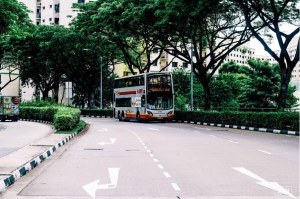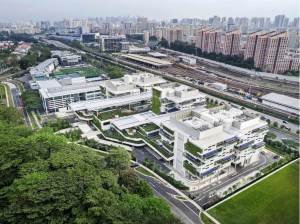Cost of Living In Singapore for an Expat
Living in Singapore as an expat offers a unique and vibrant experience. However, it’s essential to understand the cost of living in this cosmopolitan city-state before making the move. This article aims to provide an in-depth overview of the expenses associated with living in Singapore, including housing, transportation, education, groceries, utilities, and recreation. Whether you’re planning to relocate or simply curious about life as an expat in Singapore, this guide will help you navigate the financial aspects of your journey.
Housing
Singapore offers a range of housing options, from public housing (HDB flats), private condominiums and landed properties. Rental prices vary depending on location, size, and amenities. The central areas tend to be more expensive, while suburban areas offer relatively more affordable options.
For example, the cost of a 4-bedroom apartment in Singapore can vary depending on the location and amenities. In central areas like Orchard Road or Marina Bay, you can expect higher rental prices. On average, a spacious 4-bedroom apartment in a desirable location can range from SGD 8,000 to SGD 15,000 per month. However, if you’re willing to consider suburban areas, you may find more affordable options ranging from SGD 5,000 to SGD 8,000 per month.

Transportation
Singapore’s transportation system is renowned for its efficiency and connectivity. The Mass Rapid Transit (MRT) and bus network provide convenient options for getting around the city. The cost of public transportation is reasonable, and expats can choose from various passes and cards based on their travel needs.
- Car: Owning a car in Singapore is relatively expensive due to high taxes and fees. In addition to the vehicle’s purchase price, you will need to factor in other costs such as Certificate of Entitlement (COE), Additional Registration Fee (ARF), road tax, insurance, and maintenance. For example, a mid-range sedan could cost approximately SGD 120,000 to SGD 150,000, with an additional SGD 50,000 for COE. Additionally, annual road tax can range from SGD 800 to SGD 2,000, depending on the vehicle’s engine capacity.
- Taxis: Taxis in Singapore are generally metered, and fares are based on distance and time travelled. The flag-down fare for taxis is around SGD 3.20, with additional charges for distance and waiting time. On average, a 10-minute taxi ride within the city centre varies between SGD 12 and SGD 30, depending on traffic conditions and distance travelled
- MRT: The Mass Rapid Transit (MRT) system in Singapore is an efficient and affordable mode of transportation. The fares are calculated based on the distance travelled, and the cost ranges from approximately SGD 0.83 to SGD 2.25 per trip. Travelling within the city centre is relatively inexpensive, while longer distances may cost slightly more. The MRT system is extensive, covering most of the island and is considered a very efficient and safe way to travel.

Education
International schools in Singapore offer high-quality education but can come with a price tag. Tuition fees can vary widely depending on the school’s reputation, facilities, and curriculum. On average, annual tuition fees for international schools range from SGD 20,000 to SGD 40,000 for primary school and SGD 30,000 to SGD 50,000 for secondary school. Additionally, there may be additional expenses for textbooks, uniforms, school trips, and co-curricular activities. For more information on how to select the right international school, you can find a full guide here.
Groceries
Grocery shopping in Singapore can be affordable if you know where to shop. Supermarkets like NTUC FairPrice and Giant offer a wide range of products at reasonable prices. Expats can also explore local wet markets and hawker centres, where fresh produce and inexpensive meals can be found.
For example, supermarkets like NTUC FairPrice and Giant offer a wide range of groceries at reasonable prices. A loaf of bread may cost around SGD 2 to SGD 4, a litre of milk can range from SGD 2 to SGD 4, and a dozen eggs may cost approximately SGD 2 to SGD 3. Wet markets provide fresh produce, meat, and seafood at relatively lower prices compared to supermarkets. Online grocery platforms like RedMart and Amazon Prime Now offer convenience and competitive prices. Prices for groceries can fluctuate based on factors such as the brand, type of product, and ongoing promotions or discounts.
Utilities
Utilities such as electricity, water, and internet services are essential for daily living. The cost of utilities in Singapore is generally reasonable, but it’s important to manage usage to avoid excessive bills. Comparing different service providers can help expats find the most cost-effective options.
- Electricity: The cost of electricity in Singapore is measured in kilowatt-hours (kWh). On average, the electricity tariff ranges from SGD 0.20 to SGD 0.25 per kWh, depending on your consumption and the type of plan you have. A typical monthly electricity bill for a small apartment can range from SGD 50 to SGD 100 but for a typical family 4 person family is SGD 150-300.
- Gas: For households that use piped gas for cooking, the cost is based on the amount of gas consumed. The gas tariff is around SGD 0.18 per kilowatt-hour (kWh). An average monthly gas bill for a family can range from SGD 20 to SGD 40, depending on cooking frequency and usage.

Recreation
Singapore is a vibrant city that offers a wide range of activities, making it a top tourist destination. Whether you are single, a family, or a young couple, there is always something happening in Singapore to cater to your interests and preferences. The city hosts various events and attractions that take place every week, ensuring there is never a dull moment. For singles, there are bustling nightlife scenes, trendy bars, and clubs where you can socialize and meet new people. Families can enjoy visits to family-friendly attractions like the Singapore Zoo, Universal Studios, or Gardens by the Bay. Young couples can explore romantic spots such as Marina Bay Sands SkyPark, take leisurely strolls along the Singapore River, or enjoy a romantic dinner at one of the city’s many exquisite restaurants. Singapore’s diverse and dynamic cultural scene also offers art exhibitions, music festivals, theatrical performances, and food events that cater to different interests. Overall, Singapore provides a vibrant and exciting atmosphere where both locals and tourists can indulge in a variety of activities and create memorable experiences.
Moving to Singapore and need advice on schools?
Living in Singapore as an expat can be a rewarding experience, but it’s crucial to be aware of the associated costs. This is an overview of the major expenses, including housing, transportation, education, groceries, utilities, and recreation. By understanding these costs and planning your finances accordingly, you can make the most of your time in Singapore and enjoy a comfortable and fulfilling lifestyle. If you have any more questions about international schools in Singapore and what to expect when you move please contact us here and our Admissions Managers will be happy to help.
The costs stated are only estimates, we encourage you to do your own research before making any decisions to move to Singapore.






